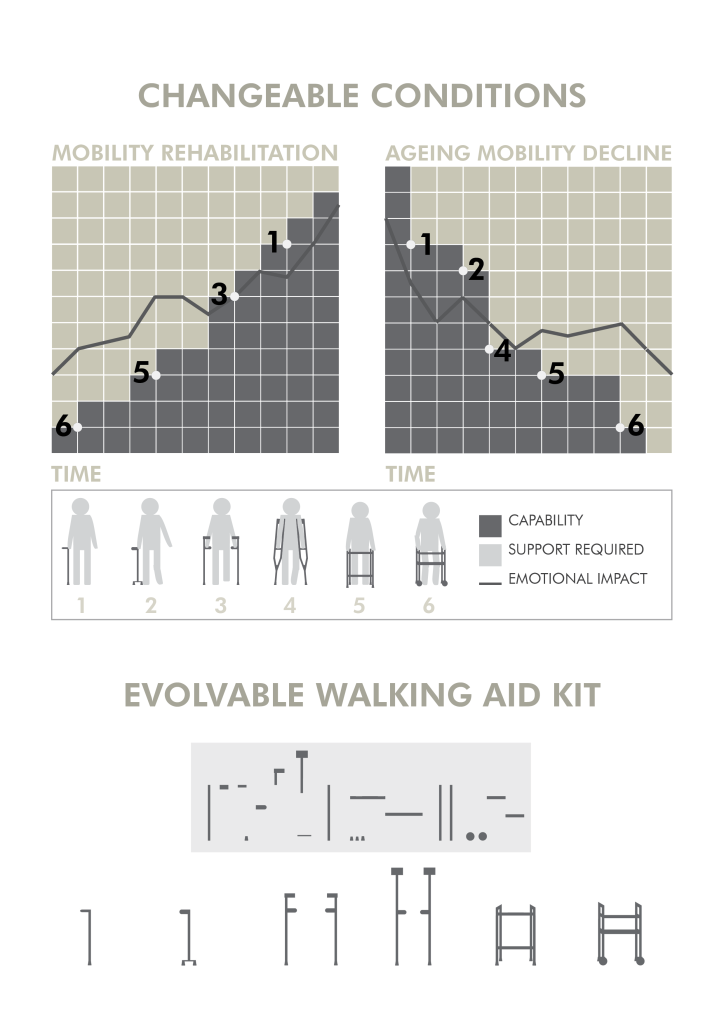How could walking aids be redesigned to improve two extreme user experiences in two extreme contexts?

CONTEXT
Over 18% of the global population has moderate, severe or extreme difficulty with walking; as the population continues to grow and age, this number is set to keep rising. Using an unsuitable walking aid can worsen a condition, disrupt healing, or increase the risk of accident or injury. There is hence an increasing need for the design of simpler and cheaper walking aids which can be easily adapted and readily available. The case study of the Evolvable Walking Aid Kits is used to investigate to what extent a modular system which has been designed to incorporate principles of affordability, evolvability and emotional durability can benefit patients. Through this study, the rationale and potential for application of these principles to a broader context of inclusive design is suggested.


METHOD
This project took a global perspective on the issues with existing walking aids and the systems for distributing them by conducting ethnographic research, interviews, and co-design processes in two extreme contexts. Firstly, a Mobility Rehabilitation Centre in rural Peru to capture insights from children in a developing context, and secondly, a Care Home in the UK to capture insights from elderly walking aid users in a developed context. Three core design principles were distilled from this research which guided decision-making throughout the design processes:
- Evolvability: flexible & adaptable.
- Affordability: modular & sustainable.
- Emotional Durability: personalisation & long-term use.
OUTCOME
The Evolvable Walking Aid concept is a modular range of parts which can be assembled to form a walking stick, crutches, a walking frame, or variations of these aids to offer different levels of support, tailored to the user’s specific needs at different stages of their condition. It gives users control and ownership over their care, whilst offering a viable, cost-effective, emotionally durable and sustainable healthcare solution which facilitates the correct long-term support. Outcomes highlight the influence of context and culture on the design process, manufacturing choices and overall product accessibility. The kit designed for rural Peru prioritises affordability and the use of local resources – it is made from pallet wood and costs just 68 pence to make. The kit designed for the UK prioritises emotional durability and centres around a circular economy business model service – it is a higher quality finish and available in a range of styles.

RELATED PUBLICATIONS
Paper – Designing An Innovative Walking Aid Kit
Article – Award-winning Evolvable Walking Aid Kits
Showcase – Design Research For Change 2019
For further information about this project, please contact Cara Shaw